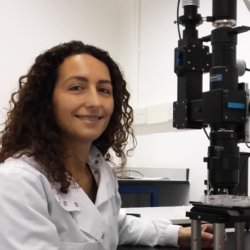Engineering mature human cardiac tissue for drug discovery and development
The aim of this PhD project is to develop and validate a novel culture platform for generation of mature human cardiac tissue.
Application deadline
Funding source
Self-funded students onlyFunding information
The successful student will be required to provide their own funding for tuition/bench fees and stipend (living costs). Partial experimental costs will be covered by the supervisor from current Royal Society and BHF grants.
About
The overwhelming majority of new drugs fail because of side effects on the heart, slowing the development of therapies at great cost to the pharmaceutical industry and the public. One reason for these failures is a lack of representative cardiac tissue models that can be utilised for drug screening and early identification of cardiac side effects. Hence, preclinical research models that truly represent the physiology of the human myocardium are needed. Recently, human induced pluripotent stem cell-derived cardiomyocytes in 2D/3D cultures have been proposed as suitable models, but whether these cultures carry adult cardiac features is still debated.
The aim of this PhD project is to develop and validate a novel culture platform for generation of mature human cardiac tissue. Using advanced cell culture methods and biomaterials, human induced pluripotent stem cell-derived cardiomyocytes will be subjected to different biophysical and mechanical stimuli to mimic the native cardiac environment. The effect of different stimuli (single or in combination) on structural and functional maturation will be investigated with optical and molecular biology methods. This project has the potential to generate an attractive in vitro human platform for drug discovery and development.
The successful candidate will be trained in relevant methods and procedures, including cell culture, bioengineering, molecular biology/protein isolation and characterization, multicellular electrophysiology and advanced microscopy.
References
- Sirabella D, Cimetta E & Vunjak-Novakovic G. "The state of the heart": Recent advances in engineering human cardiac tissue from pluripotent stem cells. Exp Biol Med 2015.
- Camelliti P, Gallagher JO, Kohl P & McCulloch A. Micropatterned cell cultures on elastic membranes as an in vitro model of myocardium. Nature Protocols 2006.
- Ruan JL, Tulloch NL, Razumova MV, Saiget M, Muskheli V, Pabon L, Reinecke H, Regnier M, Murry CE. Mechanical stress conditioning and electrical stimulation promote contractility and force maturation of induced pluripotent stem cell-derived human cardiac tissue. Circulation 2016.
Eligibility criteria
Applicants should have:
- A first or upper second class honours degree (or equivalent) in a relevant subject area including; biomedical sciences, biological sciences, biomedical engineering, physiology or related disciplines.
- Self-motivation, deep interest in research and ability to think and work independently
- Fluency in English language and good communication skills.
An MSc in cardiovascular/molecular science with merit or distinction and/or previous research experience in molecular biology or bioengineering would be advantageous.
How to apply
Informal enquiries should be directed to Dr Patrizia Camelliti (p.camelliti@surrey.ac.uk).
Applications must include a cover letter, research statement and CV with contact details of two academic references and apply though the programme page: https://www.surrey.ac.uk/postgraduate/chemical-and-process-engineering-research-phd.
Studentship FAQs
Read our studentship FAQs to find out more about applying and funding.
Application deadline
Contact details

Studentships at Surrey
We have a wide range of studentship opportunities available.
